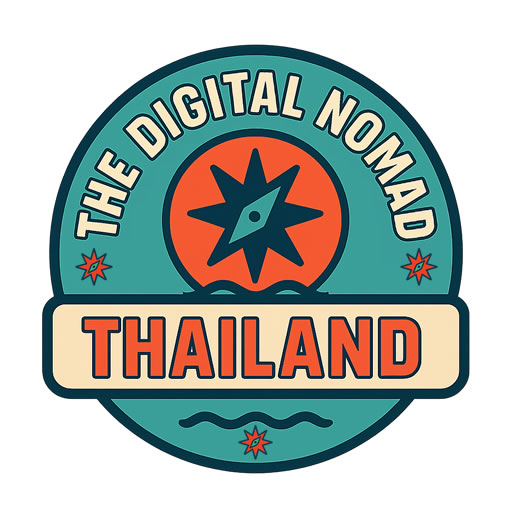
Thailand has world-class hospitals and surprisingly affordable routine care, but one serious accident or emergency can run into thousands of dollars. For digital nomads, that raises the question: do you really need health insurance here, or can you risk it?
The short answer: if you’re staying longer than a holiday, it’s risky to go without. Luckily, nomads have plenty of options—from flexible travel insurance to more robust expat-style plans. The trick is choosing the right balance of coverage, cost, and flexibility for your lifestyle.
In this guide, we’ll break down the main insurance types digital nomads actually use in Thailand, what they cost, and where to find reliable coverage.
Do Digital Nomads Really Need Insurance in Thailand?
Thailand is known for affordable living, and that extends to healthcare—up to a point. A basic doctor visit might cost only a few hundred baht, and even dental work or routine check-ups are far cheaper than in most Western countries.
But when it comes to serious emergencies, surgery, or long hospital stays, the bills can skyrocket. Private hospitals in Bangkok or Phuket are on par with Western standards, and so are the prices. A few days in intensive care can easily wipe out months of savings.
For digital nomads, that’s the risk. You might be hopping between cafés and islands most of the time, but accidents do happen—motorbike crashes, food poisoning, dengue fever, or even just a bad fall can land you in a hospital quickly. Without insurance, you’re paying out of pocket.
That’s why many nomads choose at least basic coverage. It’s less about routine care (which you can pay cash for) and more about protection from the rare but expensive events that could derail your stay—and your finances.
Types of Insurance Nomads Use
Not every digital nomad needs a full-blown expat policy. The right plan depends on how long you’re staying, whether you travel often, and what level of coverage gives you peace of mind.
1. Travel Insurance
- Best for short stays or regional hopping.
- Covers emergencies, accidents, and sometimes trip delays or lost baggage.
- Flexible, easy to buy online, and works across multiple countries.
- Downsides: usually not designed for long-term living; limited outpatient coverage.
2. Local Health Insurance
- Offered by Thai and regional providers.
- Works well for nomads who plan to stay in Thailand for 6–12 months or longer.
- Covers hospital care, some outpatient treatment, and often satisfies visa requirements(👉 especially relevant for the Thailand Digital Nomad Visa (DTV).
- Downsides: only valid in Thailand, not ideal if you’re moving around.
3. Global Nomad Insurance Plans
- Tailored for digital nomads who bounce between countries.
- Covers major medical needs worldwide, plus emergency evacuation.
- More expensive but provides stability no matter where you go.
- Downsides: higher monthly premiums, and sometimes you’ll still pay out of pocket for small things.
| Type | Best For | Pros | Cons |
|---|---|---|---|
| Travel Insurance | Short stays, regional hopping | Cheap, flexible, worldwide coverage | Limited outpatient, not built for long-term living |
| Local Thai Insurance | Nomads staying 6–12+ months | Good hospital coverage, satisfies visas | Only valid in Thailand, not for regional travel |
| Global Nomad Plans | Full-time nomads moving worldwide | Worldwide protection, evacuation included | Higher cost, sometimes pay cash upfront |
Typical Costs & Coverage
Health insurance for digital nomads in Thailand isn’t one-size-fits-all. Costs vary depending on the type of plan and your age, but here’s a rough guide:
- Travel insurance: around $40–100/month. Covers emergencies, accidents, and hospital stays, but usually light on outpatient visits.
- Local Thai insurance: around ฿1,500–4,000/month ($40–110). Includes inpatient care, some outpatient, and works for longer stays.
- Global nomad/expat insurance: around $100–300/month, depending on age and coverage level. Offers worldwide protection, emergency evacuation, and bigger benefits.
What’s typically included:
- Emergency treatment and hospitalization
- Surgery and intensive care
- Some outpatient visits and prescriptions
- Evacuation or repatriation (on higher plans)
What’s not always covered:
- Pre-existing conditions
- Routine dental and vision
- Adventure sports or motorbike accidents (check carefully!)
| Plan Type | Typical Monthly Cost | What’s Covered | Limitations |
|---|---|---|---|
| Travel Insurance | $40–100 | Emergencies, accidents, hospitalization | Weak outpatient cover, limited duration |
| Local Thai Insurance | ฿1,500–4,000 ($40–110) |
Hospital care, some outpatient, visa compliance | Valid only in Thailand |
| Global Nomad Plans | $100–300 | Worldwide coverage, evacuation, higher limits | Expensive, may require upfront payment |
📌 Bottom line: routine doctor visits in Thailand are cheap enough to pay cash, but it’s the emergencies that make insurance essential.
Recommended Providers for Nomads
For nomads, health insurance in Thailand is about peace of mind. The right plan means you can focus on work, travel, and enjoying the country without worrying about “what ifs.” You’ll find no shortage of insurance options online, but a few names come up often among digital nomads:
- SafetyWing – flexible, affordable “nomad insurance” that works worldwide. Great for younger nomads moving between countries.
- World Nomads – popular for short-term travelers, with decent adventure sports coverage.
- Allianz / Cigna Global – bigger international providers with more comprehensive plans, though prices run higher.
- Local Thai insurers – like Luma, Pacific Cross, or ACS, which are popular among expats staying long-term.
📌 Want the full breakdown of costs, coverage, and trusted providers? Check out the complete Thailand Health Insurance Guide on Thrive in Thailand
💬 What’s your go-to approach—travel insurance for flexibility, or a longer-term plan for stability? Drop your thoughts in the comments.

